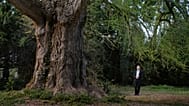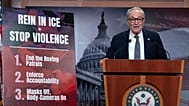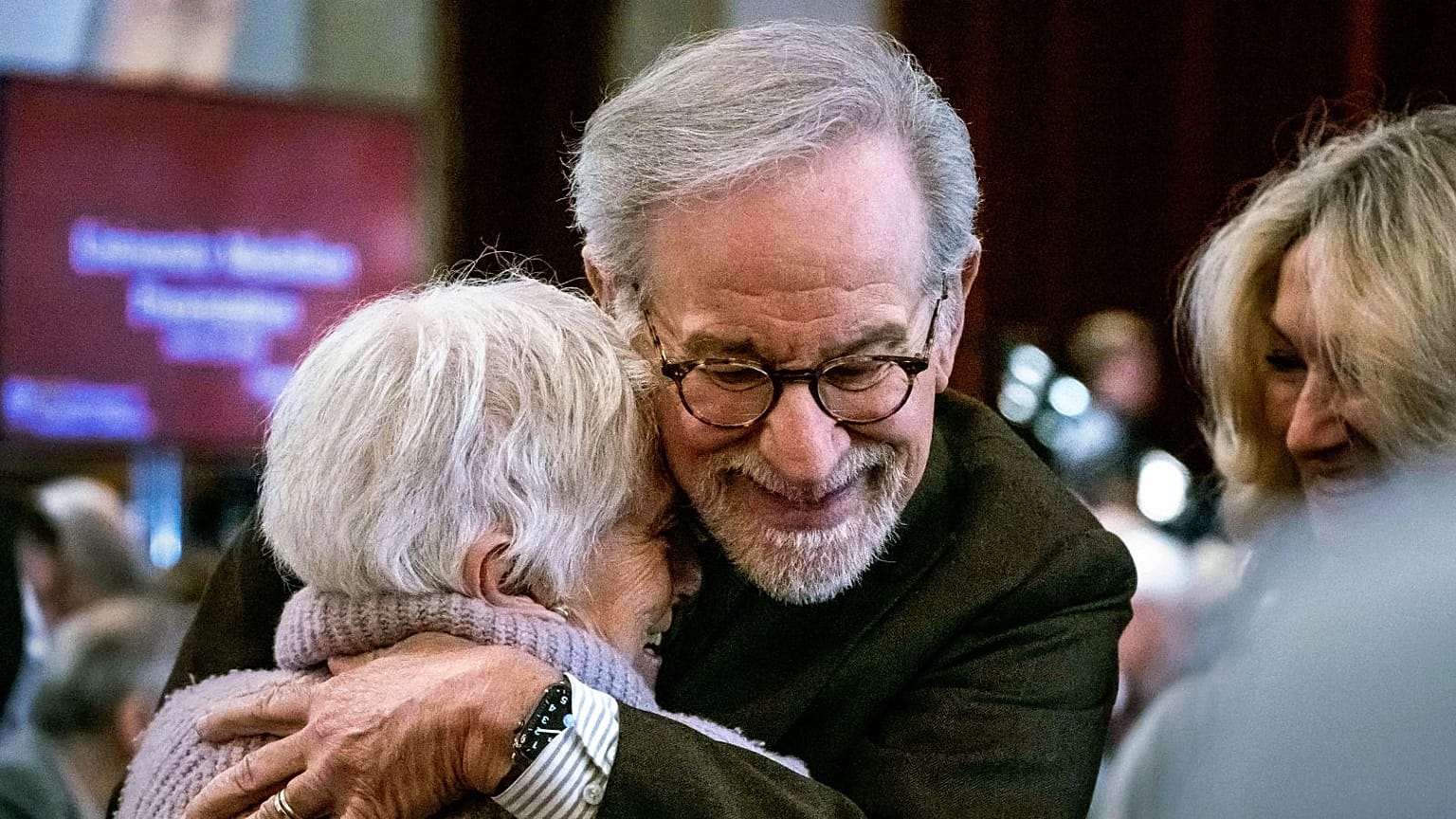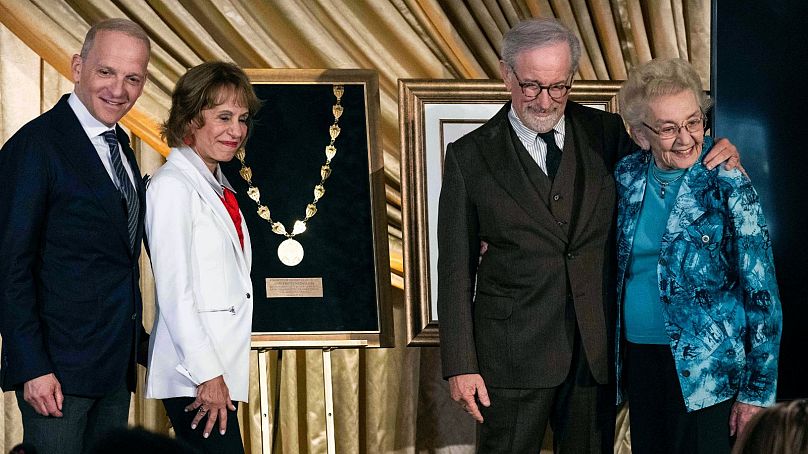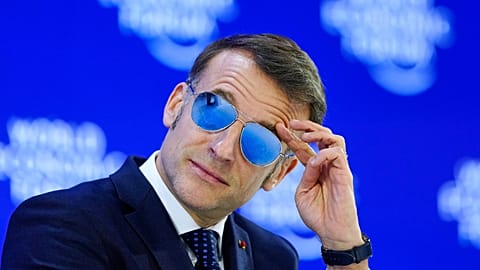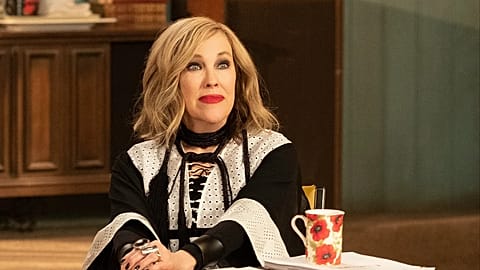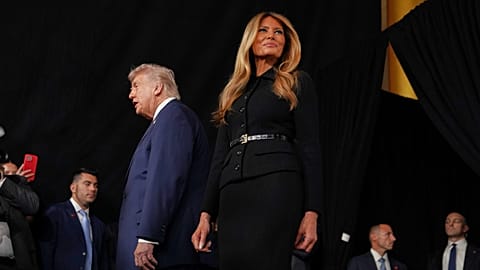The three-time Academy award winner and ‘Schindler’s List’ director has made his first comments on Gaza and denounces growing antisemitism.
“The echoes of history are unmistakable in our current climate.”
Legendary filmmaker Steven Spielberg said these words at a ceremony to honour the USC Shoah Foundation - a non-profit organisation he founded 30 years ago, which documents interviews with survivors and witnesses of the Holocaust.
The 77-year-old director of Schindler's List accepted the USC Medallion on Monday (25 March), the University of Southern California’s highest honour.
During his speech, he highlighted the importance of stopping the rise of antisemitism and extremist views amid the war between Israel and Hamas which began in October.
He also singled out young students experiencing prejudice on college campuses: “50 per cent of students say they have experienced some discrimination because they are Jewish. This is also happening alongside anti-Muslim, Arab and Sikh discrimination.”
Directly addressing the conflict in Gaza, he said: "I am increasingly alarmed that we may be condemned to repeat history, to once again have to fight for the very right to be Jewish. In the face of brutality and persecution, we have always been a resilient and compassionate people who all understand the power of empathy."
“We can rage against the heinous acts committed by the terrorists of October 7 and also decry the killing of innocent women and children in Gaza," said Spielberg. "This makes us a unique force for good in the world and is why we are here today to celebrate the work of the Shoah Foundation, which is more crucial now than it even was in 1994.”
He continued: "It is crucial in the wake of the horrific October 7 massacre. It is crucial to the stopping of political violence caused by misinformation, conspiracy theories and ignorance. It is crucial because stopping the rise of antisemitism and hate of any kind is critical to the health of our democratic republic and the future of democracy all over the civilised world."
Take the time to read his full speech, here below:
“Good afternoon, everyone. It fills me up, as my late mom Leah used to say, to be here today with you 30 years after the Shoah Foundation was founded and 20 years after the University of Southern California became our dedicated partner in this endeavor to celebrate what we’ve accomplished and reflect on all that we hope to still achieve. And I’m so grateful to President (Carol) Folt for bringing us together and for her unflagging leadership and support. Please join me in thanking her for her ongoing commitment to our mission.
For many years I’ve been incredibly fortunate to spend much of my professional life just telling stories. Stories are the foundation of history. Stories can be magical. They can be inspirational, terrifying – they can be unforgettable. And they offer a snapshot of humanity in all its beauty and its tragedy. And they are one of our strongest weapons in fight against antisemitism and racial and religious hatred. The Holocaust, or as my parents called it ‘the great murders,’ is one of the stories I heard growing up.
In my grandparents’ home Cincinnati, Ohio where I lived until I was three, my grandmother, Jenny, taught English to Hungarian Holocaust survivors. And during these lessons, I would often sit at the table with her. It was there where I learned how to count – not in school but by being taught the numbers tattooed on survivors’ arms.
One man rolled up his sleeve and showed me what the number five look like, what the number three look like. He showed me a seven. And then he said, ‘Want to see a trick? This is a nine. But when I go like this, now it’s a six. It’s a nine you see, Steve? And it’s a six.’ I was only three, but I have never forgotten that.
Years later, when I was in high school in California, I was one of a small number of Jews at that school. And I got to experience what it was like to be on the receiving end of antisemitism, both verbally and physically and through silent exclusion. It was a stark reminder that even though decades had passed since the Holocaust, the distance between my grandmother’s table and the halls of my high school wasn’t very far. And that discrimination against the Jews was not something that started or ended with World War II.
In the years leading up to and during the production of Schindler’s List, immersing myself in the darkness of the Holocaust was imperative. The one thing that always punctured the darkness was when Holocaust survivors would visit us in Krakow. I remember every survivor had a story to recount. But I also remember that it pained me that their stories were not being documented as proof of what had been done to them and to all the Jews of Europe.
By coming forward with courage to share these stories on camera, a permanent record will be preserved for the families for history for education, and for every future generation. This became my mission. This became our work and this became the Shoah Foundation. And here we are 30 years later, still determined to give those voices every opportunity to be heard. These 56,000 testimonies that we have recorded are invaluable in teaching new generations what survivors have intoned for 80 years. Never again. Never again. Never again.
In listening to them, the echoes of history are unmistakable in our current climate. The rise in extremist views has created a dangerous environment and radical intolerance (that) leads to a society that no longer celebrates differences, but to instead conspire to demonize those who are different to the point of creating the other.
The idea of the other is an idea that poisons discourse and creates a dangerous wedge throughout our communities. Othering rationalizes prejudice. It encourages the willful denial and distortion of reality to enforce preconceptions. Other is the kindling that fuels extremism and illiberalism. And we see every day how the machinery of extremism is being used on college campuses, where now fully 50% of students say they have experienced some discrimination because they are Jewish. This is also happening alongside anti Muslim, Arab and Sikh discrimination. The creation of the other and that dehumanization of any group based on their differences are the foundations of fascism. It’s an old playbook that has been dusted off and being widely distributed today. Those who cannot remember the past are condemned to repeat it.
And I am increasingly alarmed that we may be condemned to repeat history, to once again have to fight for the very right to be Jewish. In the face of brutality and persecution, we have always been a resilient and compassionate people who all understand the power of empathy.
We can rage against the heinous acts committed by the terrorist of October 7 and also decry the killing of innocent women and children in Gaza. This makes us a unique force for good in the world and is why we are here today to celebrate the work of the Shoah Foundation, which is more crucial now than it even was in 1994.
It is crucial in the wake of the horrific October 7 massacre. It is crucial to the stopping of political violence caused by misinformation, conspiracy theories and ignorance. It is crucial because stopping the rise of antisemitism and hate of any kind is critical to the health of our Democratic republic the future of democracy all over the civilized world.
This brings me back now to our celebration of 30 years of capturing stories that this world must never forget. These 56,000 testimonies that we have recorded are a foundation upon which bridges can be built, and we here at the USC Shoah Foundation are building those bridges.
A few months ago at a gathering of survivors, an 82-year-old woman named Hana Rychik shared what I know so many of us are wishing, that those who are currently being held hostage in Gaza should be safe and have hope that they will return home. Then she added something that I know means something to everyone here, she said, ‘We need peace. Peace and understanding. We should respect each other.’
I want future generations to hear Hana’s story when they sit at their grandparents’ kitchen table, as I did so many years ago, because I want them to hear the stories of courage from the past that the Shoah Foundation will continue to record. I also want them to know that we have fought against history repeating itself by celebrating Jewish survival and Jewish vitality. I want them to know that we believe in a just world for everyone and will always embrace Hana’s eternal wish for peace, understanding and human dignity.
When her wish becomes reality, we can live in a world where our essential freedoms are common across all countries, peoples and religions. And that will be the most joyful story ever told.”


